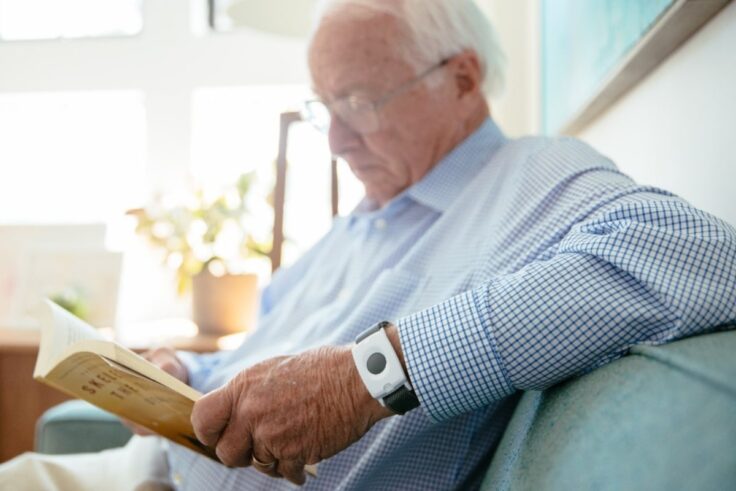8 Must-Have Features Of A Medical Alert System

A medical alert system is a device that looks like a bracelet and provides safety to the well-being of the vulnerable person that wears it.
Medical alert systems have become revolutionary in the sector of medical technology. Since their invention, these handy devices have helped save thousands, if not hundreds of thousands, of lives.
So let’s take a look over what they are, their must-have features, and who can truly benefit from these alert systems.
What Is A Medical Alert System?
Medical alert systems, also commonly known as fall buttons or personal emergency response systems, are devices that can provide safety to the well-being of vulnerable individuals.
This piece of equipment acts as an alarm system when a hazard is present.
It can help bring attention to an individual and summon emergency medical attention when and if needed.
Who Can Benefit From A Medical Alert System?
These alarm systems are typically used by elderly people or individuals with prominent health issues. They can offer a greater degree of independence to people that may need emergency assistance but live alone.
These alarms are typically triggered when there is a fall, fire, or any other emergency that requires an immediate medical response.
If you feel like you or a loved one could benefit from this technology, it’s worth looking into a series of different medical alert systems before determining which is the perfect model.
The Features Of A Medical Alert System
To make things easier, we’ve curated a list of 8 must-have features for any medical alert system:
1. Easy to Use
There’s no use in purchasing a state-of-the-art medical alert system if you have no idea how to use it.
This feature is especially important for seniors, who may not have the same ability to embrace new technologies.
The medical alert device must have a straightforward and easy way to call for help.
2. Water Resistance
Any medical alert systems for seniors must have some level of water resistance. Both the base unit and wearable piece of the device should have a waterproof casing.
A large majority of senior falls happen in the bathroom; therefore, this feature is essential.
Ideally, your device should be 100% waterproof and even wearable in the shower or bath.
3. GPS Detection
Now more than ever, seniors are increasingly independent and mobile. A medical alert device with GPS detection can help you detect where your loved one is in case of an emergency.
This is a useful feature for seniors who suffer from dementia or Alzheimer’s as they tend to wander around, get lost, or lose the ability to recognize both familiar places and faces.
4. Comfort And Practicality
Two features that are often overlooked when choosing a medical alert device are comfort and practicality.
If the device is uncomfortable, it will be difficult to get your loved one to use it.
The best way to ensure your device covers all your practical requirements is by making a list and prioritizing certain features over others.
5. Automatic Fall Detection
Fall detection is one of the more modern features of a medical device. However, it’s rapidly becoming a must-have characteristic.
Medical alert systems with automatic fall detection can help sound the alarm when a fall becomes in-capacitating.
Many falls can cause seniors to become trapped or too weak to press the emergency call button. That’s why automatic fall detection is a must-have.
6. Durable Battery Life
If you have to depend on an emergency device with short-lasting battery life, things could get very complicated, very quickly – it could even become a matter of life or death.
Depending on the model and its features, most wearable devices have a battery life of a week to a month before they need to be re-charged.
7. 24/7 Live Assistance
The best medical alert systems will feature 24/7 live assistance. There’s no use in having an emergency device if nobody is on the other side of the call waiting to help you.
With this feature, you or your loved one can benefit from the help of a trained professional within minutes.
These medically trained agents will then go on to call an emergency contact, an EMT, or the police if necessary.
8. Discreet Appearance
Many seniors push back at the thought of a medical alert system simply because these devices have a negative stigma attached to them. They typically hold connotations of old age and dependence.
A discreet appearance can help mitigate this negative stereotype. Many medical alert devices are designed to look like a regular bracelet, necklace, or watch.
Conclusion
All in all, a medical alert system should not be perceived as a weakness or a nuisance.
In fact, these personal emergency response systems are totally the opposite. They can help individuals be more independent, bring peace of mind to loved ones, and, most importantly, help save lives.